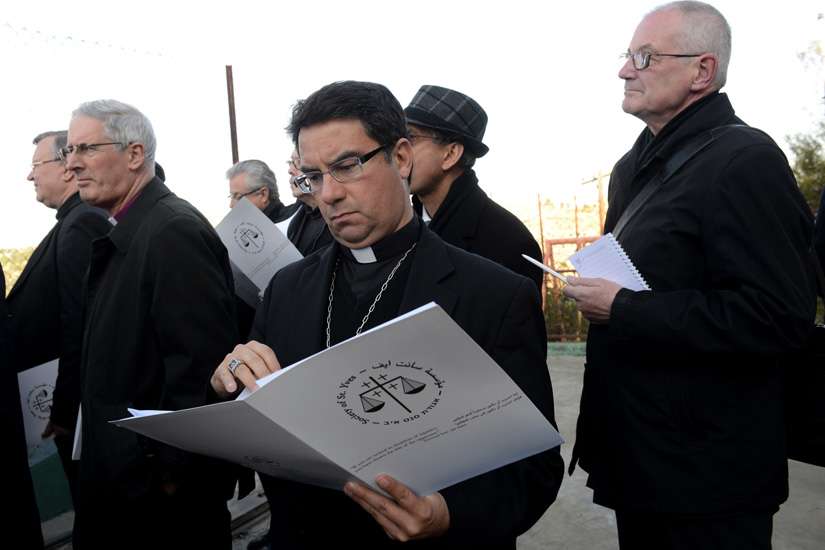Sixteen bishops who represent the Holy Land Coordination group went to Gaza for the first time since the conflict killed some 2,000 Palestinians and 70 Israelis.
“We witnessed the tragic consequences of the failure of both local and international politicians to advance peace,” the bishops said.
“The ongoing conflict assaults the dignity of both Palestinians and Israelis, but in a particular way our commitment to the poor calls us to lift up the suffering people in Gaza.”
The Holy Land Coordination, which travels to the region each year, is organized by English and Welsh bishops. After a lengthy delay at the Erez checkpoint Sunday (Jan. 11), the bishops entered Gaza, where they celebrated Mass and met Christian families and charities.
Members of the group, which included Bishop Oscar Cantu of Las Cruces, N.M., said they were struck by the widespread destruction from last year’s conflict. The bishops also called for an end to Israel’s blockade of Gaza.
“Many tens of thousands of families in Gaza lack adequate shelter. In the latest freezing weather, at least two infants died of exposure,” the bishops said.
“The continuing blockade dramatically impedes rebuilding and contributes to desperation that undermines Israelis’ legitimate hope for security. It also creates intolerable levels of unemployment and pushes ordinary people into deeper poverty.”
The bishops urged political leaders to find “creative” ways to build peace in the Middle East and “to build bridges, not walls.”
The Israeli government conceded Friday that life in Gaza was “indeed fairly bleak” but said the poor conditions there were a “sad indictment” of the leadership of Hamas, the militant group that controls Gaza and is considered by both Israel and the U.S. to be a terrorist organization.
“History will judge Hamas poorly for this,” the Ministry of Foreign Affairs said in a statement to Religion News Service.
The ministry said peace was possible, but Israel had little faith in the Palestinians whom it said had violated peace deals in the past.
“These agreements, which bind both Israel and the Palestinians, require us to resolve outstanding differences through negotiations,” the statement said.
“When the Palestinians, by violating this, unashamedly tell us all that they do not abide by agreements they enter into, that doesn’t do much for our confidence.”
The ministry confirmed it had suspended the transfer of tax revenues to the Palestinian Authority in Ramallah — not because the Palestinians had recently moved to join the International Criminal Court — but because of what it called the “fundamental violation” of all Israeli-Palestinian agreements.


